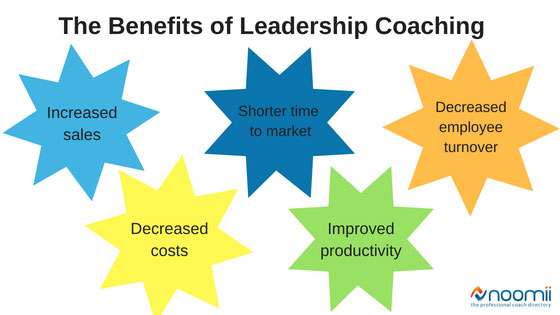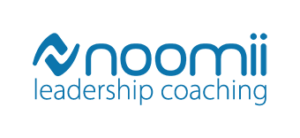
What Is Leadership Coaching?
Leadership coaching aims at improving the impact and effectiveness of anyone in a leadership position. One specialized form of leadership coaching is executive coaching, which typically focuses on CEOs and other senior leadership team members, as well as high potential employees.
Leadership coaching has become increasingly popular over the past three decades, largely because it’s the most effective form of professional development for people in leadership positions. Unlike offsite training programs, workshops and classes, leadership coaching is highly customized, focusing on improving a person’s effectiveness in addressing his or her specific challenges and opportunities arising within the current work environment. Furthermore, coaching occurs on an ongoing basis, usually every other week, until a client’s specific goals are achieved. This embedded approach allows a person to incorporate new behavior, perspectives and insights from coaching over time and adjust coaching goals as the person evolves and their needs change.
What Are The Benefits of Leadership Coaching?
Benefits for the Individual
Leadership coaching provides leaders with individual attention, support and feedback on a regular basis and is aimed at helping a person who is already performing well do even better. Leadership coaching engagements usually begin with a 360 developmental assessment that identifies strengths and opportunities for leadership development. Through this process, a leader receives confidential feedback summarized from interviews with a dozen or so direct reports, peers and bosses with whom they work.
This feedback centers on what a leader does very well and also identifies areas of improvement that would further enhance that person’s leadership impact and effectiveness. The 360 assessment serves of the basis for setting goals for leadership coaching. Typically, this process both affirms a leader’s positive performance and contributions while also generating very frank and revealing information about how and what a leader might do even better.
Regular sessions with a leadership coach provide a confidential, supportive setting for exploring how to move forward in achieving a leader’s coaching goals, as well as sorting through how to best respond to emergent opportunities and challenges.
A typical coaching session ends with an agreement about what next steps the leader will take prior to the following coaching session. Then the following coaching session begins with a review of the last session’s next steps. In this way leadership coaching also provides a framework of accountability for a busy leader to make sure there is timely follow-through on completing specific actions.
Benefits Experienced by the Company
Increasingly, employers realize that leadership coaching also has several organizational benefits when it comes to attracting, promoting and retaining talent and supporting succession planning. Employers often use the offer of leadership coaching as an incentive for potential hires. In a number of organizations, leadership coaching is also utilized as a practical approach to successfully onboarding new hires and helping recently promoted leaders adjust to increased responsibilities and new roles.
Likewise, providing coaching to people in leadership positions also serves as an important perk that increases the identification and retention of good talent. Since leadership coaching usually involves the client’s boss in setting and reviewing coaching goals, it can also provide valuable personnel insights relevant to succession planning. And finally, leadership coaching lets a client share and sort through emergent challenges and opportunities in a confidential setting, allowing for earlier and more successful responses to both.
When leadership coaching is made available to all members of a senior leadership team, or even more broadly to other levels of management, the benefits can be further magnified, especially if the coaching is grounded in information produced by 360 developmental assessments. The interviews that are the basis of these assessments tend to have two distinct effects. First, they introduce new level of candor in discussions about what colleagues do well and how they might further improve. Second, being interviewed for a 360 assessment makes participants mindful that they will likely have their own 360 assessment at some point, heightening their awareness of how their colleagues would likely comment on their own strengths and areas of needed improvement.
In most cases, this dynamic results in raising the bar for professional behavior in an organization, since improved behavior modeled at the top of an organization usually cascades downward. In this way, leadership coaching that is broadly and effectively utilized can also substantially improve organizational climate.
Who Pays for Leadership Coaching?
Employers typically pay for leadership coaching and often place the responsibility to find a coach for their employees with human resources. In most organizations, human resources will present the employee with a list of coaches or coaching websites, but will leave the decision of which specific coach to choose up to the employee. This is important because the act of choosing a coach that one feels comfortable with is the first step in building commitment to making changes in one’s behavior. Be wary of HR departments that offer a limited list of coaches from which to choose or insist on deciding which coach to assign to an employee. Both of these practices can raise serious ethical issues.
Even when one’s organization is willing to pay for a leadership coach, there are times when it might be wiser and more appropriate to hire the coach on your own. In organizations where coaching isn’t valued or is seen as a crutch, clients may not want their colleagues to know they are working with a leadership coach. Some clients will want to keep their coaching confidential for other reasons, such as the avoiding the appearance that they need help to do their job or assuring that their coaching doesn’t become grist for the organization’s gossip mill. Others are reluctant to disclose their coaching because they may be utilizing it to explore how to address conflict with a difficult boss, co-workers or direct reports.
If you are unsure how your organization approaches leadership coaching, make sure to ask trusted colleagues and refer to this guide, which categorizes the ways organizations utilize leadership coaching, ranging from regressive to exemplary.
How Do I Select a Leadership Coach?
The most important step in choosing a leadership coach is sharpening your sense of what you want to accomplish in coaching. Even after a 360 assessment, a leader still has some latitude in choosing what areas to focus on.
Topics typically addressed in leadership coaching generally fall into two categories:Â challenges and opportunities. Most people seeking a leadership coach are currently in a position of leadership and know what they want to accomplish or address, but are less sure how best to bring this about. Another critical decision is deciding if you want to work with a coach in person, virtually, or a mix of both. Many leadership coaches like to meet with a prospective client in person initially and then move to virtual conversations, usually every other week.
In addition, determine whether your organization will be paying the coach or you will be paying for coaching out of pocket. When an organization is paying for coaching, the coaching fees are typically higher because the client’s boss and HR can be involved in approving the coaching goals and periodic reviews of progress, usually resulting in more face-to-face meetings for the leadership coach at the employer’s location.
The next step is checking out website like Noomii.com for leadership coaches, identifying two to five coaches that seem appropriate for you and your situation. Once you’ve narrowed down your list of prospective coaches, check their websites and LinkedIn profiles to gain more insight into their approach to coaching, credentials and experience. Then make an appointment to speak on the phone with the first coach that seems most appropriate. Let the coach know what your search process is (i.e., that you’ve got a short list and are interviewing them so see who might be the best fit, etc.). Remember to take notes.
If the first coach you call seems to be a good fit, it’s your choice whether to call the others or not. If you’d like to proceed with this first coach, ask what his or her policy is regarding a complimentary session. Most coaches are concerned about finding clients who are good match for them and offer a complimentary initial session so that both parties can assess if the fit seems like a good one. If you have any doubts after the session, call the next coach on your list. In any event, do send a follow up email to any coach you spoke with but didn’t choose, thanking them for their time…you never know when you might cross paths again. If you need assistance in finding a coach, you can request a coach recommendation through Noomii’s free Referral Program.
Here’s how you can tell if the fit with a leadership coach is a good one:
- The coach has experience coaching others at your level of leadership and in the same or a similar industry or sector.
- You’re put at ease by the coach and feel comfortable talking with her or him.
- The coach understands what you’d like to accomplish and asks thoughtful questions.
- Your conversation with the coach has already started to give you new insights, ideas and perspectives.
- You are feeling energized, optimistic and also relieved about getting help in moving forward.

What are the Benefits of Leadership Coaching?
According to the 2009 International Coach Federation Global Coaching Study, the median company return was reported to be 700% with almost one fifth of respondents reporting an ROI of at least 50 times (5000%) the initial investment.
There are various ways to calculate the benefits of executive coaching, such as 360 reviews, climate surveys, customer surveys and surveys of sales, costs, employee turnover and other business results.
Of course, some results are more “tangible” than others and are easier to translate into a monetary value or bottom-line impact. Of course, that doesn’t mean that the tangible benefits outweigh the intangible in terms of importance. In fact, intangible changes in the client’s behavior can often have a wider-ranging impact than, or may actually lead to, the more tangible benefits of coaching.
Here are some examples of tangible benefits from leadership coaching
- Increased sales
- More customers called on
- More new accounts opened
- Decreased costs
- Decreased employee turnover
- Decreased absenteeism
- Shorter time to market
- Improved productivity
- Fewer customer/employee complaints
Leadership Coaching Articles by Noomii Coaches
- What Topics Are Appropriate in Leadership Coaching & How Do I Choose a Coach?
- Leading in Dangerous Times
- The Winds of Change – How Executive Coaching Helps Leaders Produce Better Results
- 7 Signs of a Successful Leader in the Workplace
- A Teen’s Guide to Leadership: 3 Steps to Make You a Great Leader
Find the Perfect Leadership Coach with Noomii
There are thousands of leadership coaches out there, so the process of finding the right match can be daunting. Luckily, our coaching experts at Noomii make the process of finding the best executive coach matches for your leader simple and painless!
You can browse through hundreds of leadership coaches in dozens of cities or request a personalized coach recommendation and they will find leadership coaches for you! Or, for corporate coaching engagements for leaders at your organization, our leadership coach match specialist will set up a call with you to discuss the details of your coaching needs, such as desired location, educational and professional background and budget.
This post was written by executive and leadership coach Grant Ingle.

